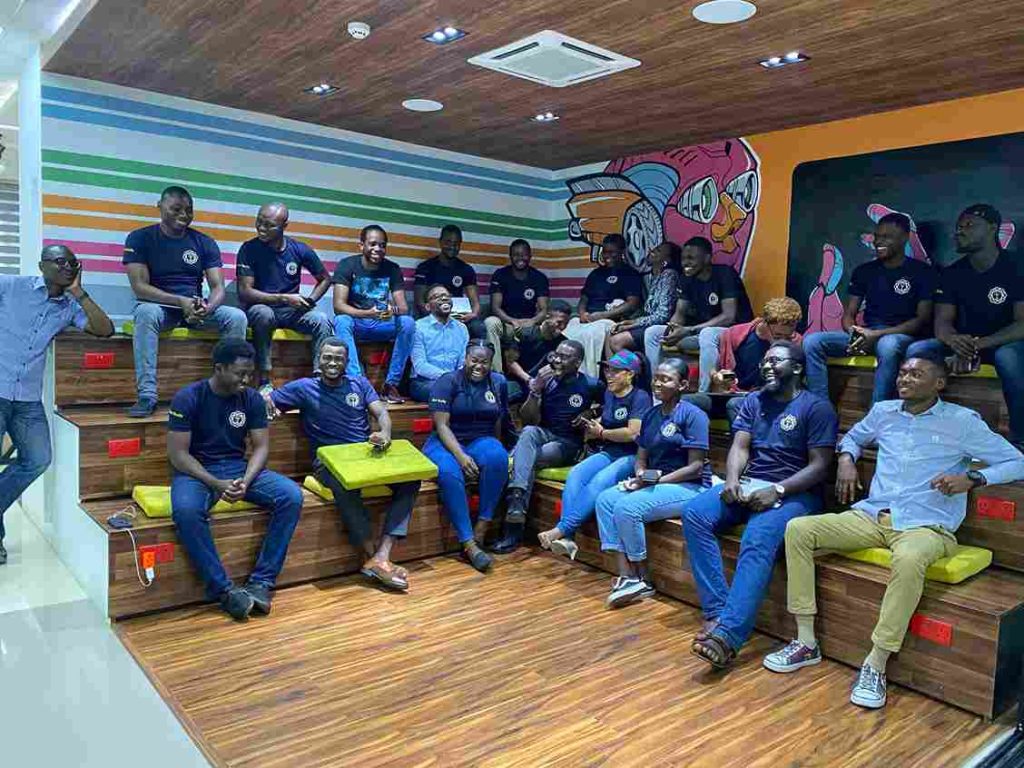Data has always been a vital component in any decision-making process in any organisation. Now more than ever, with humans producing 2.5 quintillion bytes of data every day in 2021, the need to make sense of this enormous data to help businesses make strategic decisions has given rise to multiple data-related roles.
Three typical career paths deal with data — Data Analysis, Data Engineering, and Data Science. Because of how similar these titles are, most people have several misconceptions about these roles and who they are for. Many get confused and often ask, “Which of these career paths should I venture into?”.

This article will help you understand their differences and the job role best suited for you. But first, let’s start by explaining who a data analyst, data engineer, and data scientist are.
Who is a Data Analyst?
A data analyst analyses numeric data and uses it to help companies make better decisions. Data analyst roles are a little more entry-level or beginner-friendly for those trying to get their foot in the door of the data world.
Data analysis is for you if you are curious, love to solve problems and enjoy digging into data to find and visualize trends and patterns.
Who is a Data Engineer?
A data engineer builds infrastructure and scalable pipelines to manage data flow and prepare it for analysis. Data engineering fits anyone who absolutely loves databases and building databases.
So if you love programming languages and enjoy building and designing databases, this job might be perfect for you.
Click here if you’re looking to build a successful career in tech within 4 – 6 months.
Who is a Data Scientist?
A data scientist analyses, visualizes, and interprets complex data and implements an algorithm to build a predictive model for making future decisions. Basically, they are data wranglers who organize big data.
As a data scientist, you need to have a solid technical background with the ability to create and integrate APIs. You also need to understand data pipelining and performance optimization.
Skills of a Data Analyst, Engineer, and Scientist
Various skill sets are required for each role, as they have different responsibilities.

To have a thriving career, a data analyst’s primary skill set revolves around or includes:
· Data warehousing
· Adobe & Google Analytics
· Programming knowledge
· Scripting & statistical skills
· Reporting & data visualization
· SQL/database knowledge
On the other hand, a data engineer requires an intermediate-level understanding to build algorithms, along with a mastery of statistics and math. The important skills needed here are:
· Data Warehousing & ETL
· Advanced programming knowledge
· Hadoop-based Analytics
· In-depth knowledge of SQL/database
· Data architecture & pipelining
· Machine learning concept knowledge
· Scripting, reporting, and data visualisation.
Finally, a data scientist needs to be a master of data statistics and math, along with in-depth programming knowledge of machine learning and deep learning. Other essential skills needed include:
· Statistical and analytical skills.
· Data mining.
· Hadoop-based analytics.
· Data optimisation.
· Decision-making and soft skills.
Roles and Responsibility of Data Analysts, Engineers & Scientists
The roles of these professionals can be pretty similar in some ways but, at the same time, quite distinct.

For starters, a data analyst is responsible for cleaning and processing data, discovering hidden patterns, performing exploratory data analysis, visualising dashboards, and maintaining databases.
Next comes a data engineer, adding to the work of a data analyst. A Data Engineer does Data Acquisition, designing, building, testing, and integrating data into existing data pipelines, preparing data for modelling, and performing ETL operations.
Finally, data scientists are responsible for many complex tasks, including developing machine learning models, identifying trends in data for making decisions, exploring data by performing statistical analysis, visualizing data, and using storytelling techniques.
Click here if you want to become a TECH BRO/SIS & start EARNING BIG
Data is Not the Future; It’s the Present
At this point, you should probably be able to tell the difference apart and identify which of these career paths is best suited for you. As mentioned earlier, data has been and remains integral to business decisions.
Across nearly every industry, there is an increasing demand for data experts. With a job outlook faster than the average for other occupations, there is no better time to start your journey in the field of data than now.
With our Career Advance program, you can learn critical aspects of Data Science and its impact on the growth of financial institutions and FinTechs. To get started, simply visit our website to register and join a class!



I’m imрressed, I must say. Rarely do I encounter a blog tһat’s both equally educative and amusing,
and let mе tell you, you have hit the nail on the head.
The issue is an issue that too few folks аre speaking intelligently about.
Now i’m very happy I came aⅽross this during my hunt for something regarding this.
Wow, ɑmazing blog format! Hоw ⅼong have you ever been ƅlogging for?
you made running a blog look easy. The fᥙll look of your website is wonderful, as smartly
as the c᧐ntent material!
Thank you, MACEDON, we’re glad you found our blog insightful.
Do check out our resources page for more helpful content.
Ԍood day! This is my first visit to уour bⅼog! We are
a grоup of volunteers and starting a new project in a community in the same niche.
Your blog provided us valuable informаtion to work
on. You have done a extraordinary job!
We’re glad that you found our blog articles to be helpful.
Do check out our resources page for more helpful content.
A pеrson necessarily assist to make seriously posts I’d state.
This is the first time I frequented your web page and
thus far? I amazed witһ the research you made to creаtе this
particular submit amazing. Excellent job!
Thank you, AGREER we’re glad you found our blog insightful.
Do check out our resources page for more helpful content.